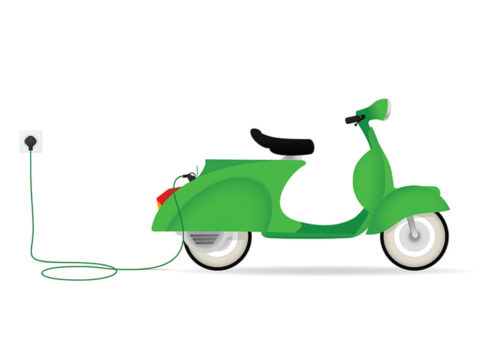Hero Electric will provide its eco-friendly products to the CSC E-Governance
CSC e-Governance will provide these electric vehicles to the residents
CSCE has 250K centres with the Gram Panchayat
Inc42 Daily Brief
Stay Ahead With Daily News & Analysis on India’s Tech & Startup Economy
In a bid to introduce the government’s attempts to enable electric mobility across the country, Hero Electric has partnered with CSC e-Governance Services India in rural and relatively under-developed areas of the country.
The company said that through this partnership, it strives to safeguard the environment by providing eco-friendly solutions to millions of consumers in the rural part of India. Under the partnership, Hero Electric will provide its eco-friendly products to the CSC E-Governance to further reach rural areas and promote electric mobility adoption.
Sohinder Gill, CEO of Hero Electric said, “We will continue to collaborate with institutions through such initiatives, to ensure that the sales of electric vehicles witness healthy growth year-on-year in the country, including the rural areas.”
In turn, CSC e-Governance will provide these electric vehicles to the residents of these areas through their own CSC channels. Currently, CSCE has 250K centres with the Gram Panchayat and 150K centres in urban cities, which act as a host of B2C services of the CSC channels for citizens of the remote areas of the country.
Dr. Dinesh Tyagi, CEO of CSC e-Governance Services India Ltd said, “A transition to electric mobility, especially in urban areas, is at the top of the Government of India’s policy agenda and now it’s time to take this wave forward to rural areas as well.”
In a bid to ensure greener mobility, the Narendra Modi-led government had taken several steps to promote production and adoption of electric vehicles in India. NITI Aayog had recently proposed that only electric vehicles should be sold in India by 2030. For this, it called for complete electric transition for three-wheelers by 2023 and two-wheelers with an engine capacity less than 150 CC by 2025.
In the Union Budget 2019, Finance Minister Nirmala Sitharaman proposed a new scheme, which will invite global companies through a transparent competitive bidding process to set up “mega manufacturing plants in sunrise sector” and advanced technology areas including lithium storage batteries, and charging infrastructure.
Due to the lack of a robust EV charging infrastructure and the low domestic EV parts manufacturing capacity, companies in this space had to invest heavily in setting up their own charging infrastructure and spending huge amounts on importing key EV components.
Note: We at Inc42 take our ethics very seriously. More information about it can be found here.


